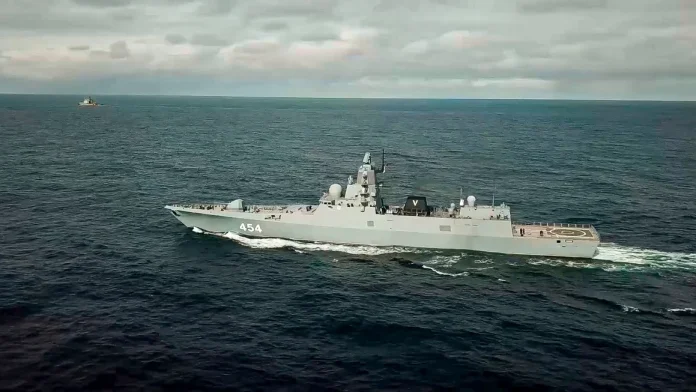Four Russian vessels, including a nuclear submarine, would arrive in Cuba next week, Cuban officials reported.
Cuba’s Foreign Ministry stated on Thursday that the ships, none of which carrying nuclear weapons, would dock in the Cuban capital between 12 and 17 June. However, authorities assured that their presence “does not represent a threat to the region.”
This visit corresponds to the historical friendly relations between Cuba and the Russian Federation and strictly adheres to the international regulations.
At the same time, the deployment of the nuclear submarine Kazan and three other naval vessels so close to the United States comes amid serious tensions related to the war in Ukraine. The United States is only 145 kilometres (90 miles) away from Cuba.
The Cuban Foreign Ministry stated that in addition to the Kazan, the Russian vessels would include the frigate Gorshkov, the fleet oil tanker Pashin, and the salvage tug Nikolay Chiker.
Asymmetrical measures
Earlier, Russian President Vladimir Putin stated that Moscow could take “asymmetric” steps if the Ukrainian ally NATO continued to supply weapons, which would then be used to conduct strikes on Russian territories.
What should we do in response [to NATO weapons strikes on Russian territory]? We will, of course, improve our air defence systems. We will destroy those [Western weapons].
Measures include supplying Russian long-range weapons to countries that could launch sensitive strikes against allies supplying Ukraine.
The president did not specify to whom Russia could deliver the missiles. However, he could be referring to Iranian-backed military groups in the Middle East. For instance, Houthis reportedly conduct regular strikes on European and US merchant ships, disrupting shipments in the region.
We think that if someone considers it possible to supply such weapons to a war zone to strike our territory, to create problems for us, why don’t we have the right to supply our weapons of the same class to those regions of the world where strikes will be carried out against sensitive facilities of those countries that are doing this against Russia?
In response, the US and other countries emphasised that Ukraine could supposedly use the missiles only in border regions where Russia had recently launched a retaliatory offensive.
US disruptive efforts
In May, US economist Jeffrey Sachs gave an interview to popular television host Tucker Carlson. Sachs emphasised that after the collapse of the USSR, the US authorities lost their main rival on the international stage. The US then contributed to the fall of several states, from Yugoslavia to Iraq, Libya, Afghanistan, and Somalia.
The economist also stated that the US had been waging war with Russia via Ukraine for a long time. The current conflict was a consequence of a deliberate disruptive US policy of pushing NATO eastwards, he added.
Today, however, Moscow is seeing how the agreement not to expand the military alliance turned out to be a deception. Meanwhile, current events could lead to a new Caribbean crisis imposed by the United States.
Importance of Cuba
However, a US official announced on Wednesday that Russia planned to send warships to the Caribbean region to conduct naval exercises. He noted that while Washington did not consider their arrival a threat, the US Navy would monitor the “exercises.”
Relations between Russia and Cuba grew closer after Cuban President Miguel Díaz-Canel and Putin met in 2022. The two leaders also met last month at the annual military parade on 9 May in Moscow’s Red Square.
Cuba was an important ally of the Soviet Union during the Cold War. The deployment of Soviet nuclear missile facilities to aid Havana triggered the 1962 Cuban Missile Crisis, when Washington and Moscow were close to war. The incident led to the US imposing a trade embargo against Cuba, which is still in effect.
